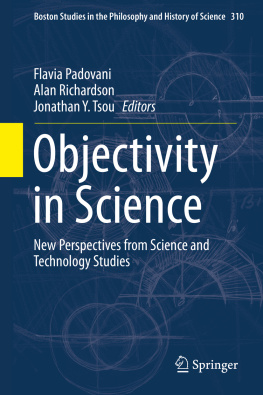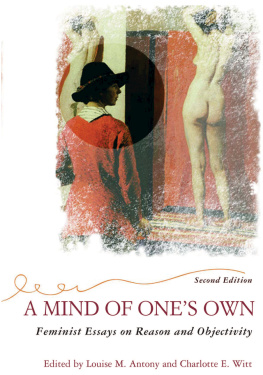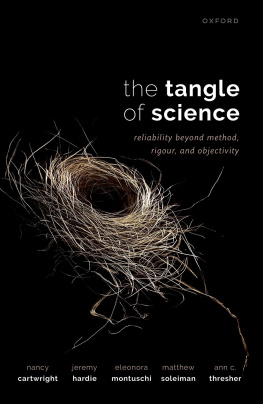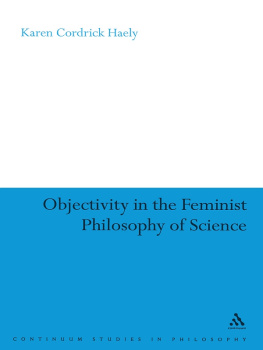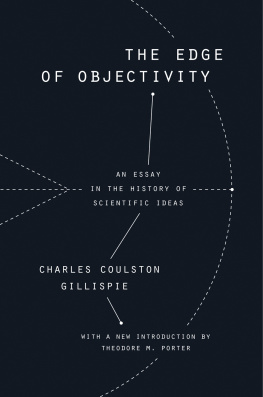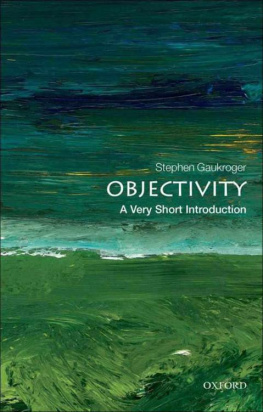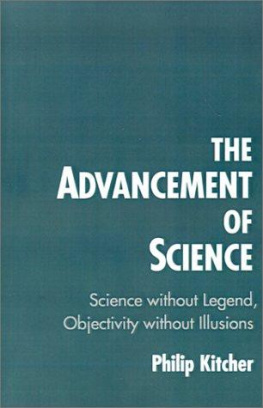1. Introduction: Objectivity in Science
While few would question the importance of the objectivity of science for providing a well-supported factual basis upon which policy decisions can be reliably made, it is far from clear what scientific objectivity is or how it should be achieved. In recent decades, questions regarding the objectivity of science have become increasingly salient in framing public debates about science and science policy: for example, can we trust medical research when it is funded by pharmaceutical companies? Or, whose research in climate science meets the standards of scientific objectivity? At the same time, the objectivity of science has become an increasingly important topic among historians and philosophers of science, as well as researchers in related fields in science and technology studies. In the wake of Karl Poppers ( Taken together, these investigations offer compelling reasons for thinking that scientific objectivity is much more complicated than one might have imagined. Two emergent themes from the science and technology studies literature are especially important in this regard.
The first of these themes comes largely from philosophy of science, but philosophy of science that is informed by sociology of scientific knowledge and by feminist criticism. This theme can be summarized as follows: The standard account of the objectivity of science throughout much of the twentieth century was value-freedom. Science is able to serve as an objective source of unbiased information precisely because either the individual scientist is ablequa scientistto transcend all social, moral, and political values, or more plausibly, the institution of science is able to insulate itself from social values that would bias it and render it subjective. With the historical turn in philosophy of science after the work of Thomas Kuhn and others and with the rise of sociology of scientific knowledge, which took the class-based interests of scientists and of the institutions of science for granted, such claims have come to seem increasingly implausible. It is far too easy to see moral and social values suffusing all the past achievements of science, including those that we still endorse as well as those we no longer endorse. The social and moral values at the heart of Darwins theory of evolution are just as evident in his account of natural selection, which is still understood to be largely correct, as in his advocacy of proto-eugenicist social policies, which we largely reject. Scientists and the institutions of science bear within their bodily frames the indelible stamp of the times, places, and social structures in which they have arisen.
With a similarly motivated but even more empirical eye, feminist critics of science have measured the community of science against the ideals that every community claims to hold dear.
What should be done in light of such concerns about the value-free ideal of objectivity? One responseone alleged to be common in the science and technology studies community, but in fact quite rare within that communitywould be to deny the objectivity of science: objectivity is value-freedom, but no person and no institution is value-free, not even scientists and the institutions of science. Science is one more interested political actor in an on-going socio-political power struggle, nothing more and nothing else. Such climate science cannot be reliable, must be beholden to special interests, and its results can be set aside in the policy realm. Such a response usually does not go so far as to call all objectivity impossible, since the science, if any there be, backing the views of the critics is usually endorsed as objective. The impossibility of value-free objectivity becomes, when deployed in this way, a dialectical game that renders finding a factual common ground impossible.
The response of the science and technology studies community to the objections to the value-free ideal as an account of the objectivity of science has largely been along a different line. The impetus here is to think about what objectivity is or could be if we reject the value-free ideal. One highly important account of the objectivity of science, due to Helen Longino, has become the focus of much of the philosophical effort regarding scientific objectivity and so deserves a brief exposition here. Longinos account of the objectivity of science begins with a specific location where, on her analysis, the value-free ideal must failthe problem of the underdetermination of theory by evidence (Longino 1990, chs. 23; 2002, ch. 6). The underdetermination problem is a longstanding methodological problem that philosophy of science has investigated: on logical grounds alone, no scientific theory can be the unique theory confirmed by empirical evidence, even if we imagine we have gathered all possible evidence. Since any theory presupposes various background beliefs and assumptionsincluding norms regarding what counts as evidencethe theory makes claims that go beyond what can be established by observational evidence alone. Given this evidential gap, Longino argues that values must be invoked to choose to develop or accept one theory rather than the other. Hence, all theory acceptancesince the underdetermination problem is entirely generalrelies ultimately on values.
With the value-free ideal impossible in principle, Longino sets about articulating a new social account of objectivity in which there is no pretense that individuals and institutions in which they work lack commitment to values and in which values are not seen as inherently biasing (cf. Antony Scientific objectivity is thus constituted by the fact that scientific knowledge must be presented in a public domain where it must face criticism . In this regard, Longino articulates a set of norms for the critical uptake of scientific claims among interested individuals. These normswhich include norms for publication venues, uptake of criticism, transparency of epistemic standards, and tempered equality of intellectual authoritythen constitute the conditions under which a community can be said to be an objective knowledge-producing community (Longino 1990, 7679; 2002, 128135). As these norms are not meant to be descriptive of any actual community, they can be used to criticize extant scientific communities if those communities are, say, gender biased (violating tempered equality) or insulated from criticism (violating the norms relating to uptake and to publicity of standards). As is evident in the essays in this volume, Longinos normative epistemology forms a large part of the background for much contemporary philosophical work on objectivity.
The second theme that has brought objectivity to the forefront of contemporary science and technology studies is the rise of what Lorraine Daston has dubbed historical epistemology. In this tradition, historical epistemology refers to the historical development of key concepts of epistemology. Rather than taking, for example, the notion of matter of fact or experience for granted and theorizing the transhistorical role of matters of fact or experience in knowledge, historical epistemology looks into the historical development of concepts of matter of fact and experience. Largely through the work of Lorraine Daston and Peter Galison, one of the concepts most rigourously and extensively examined within this literature is objectivity. Their monumental volume Objectivity (Daston and Galison 2007) traces the development of concepts of objectivity as these concepts informed the practices of visual representation in science in the nineteenth and twentieth centuries. The volume exhibits how conceptions of objectivity arise from specific and changing concerns about the nature of the knowing subject, yield regimes for attempting to secure objective representation so conceived, interact with technological developments for the production of representations, and yield new epistemological problems that in turn can yield new conceptions of objectivity. These conceptions and the corresponding regimes for securing objective representation do not supersede one another without remainder; rather they yield a complex, layered, and polysemous set of concepts and practices that are deployed in the scientific representation of the world.

